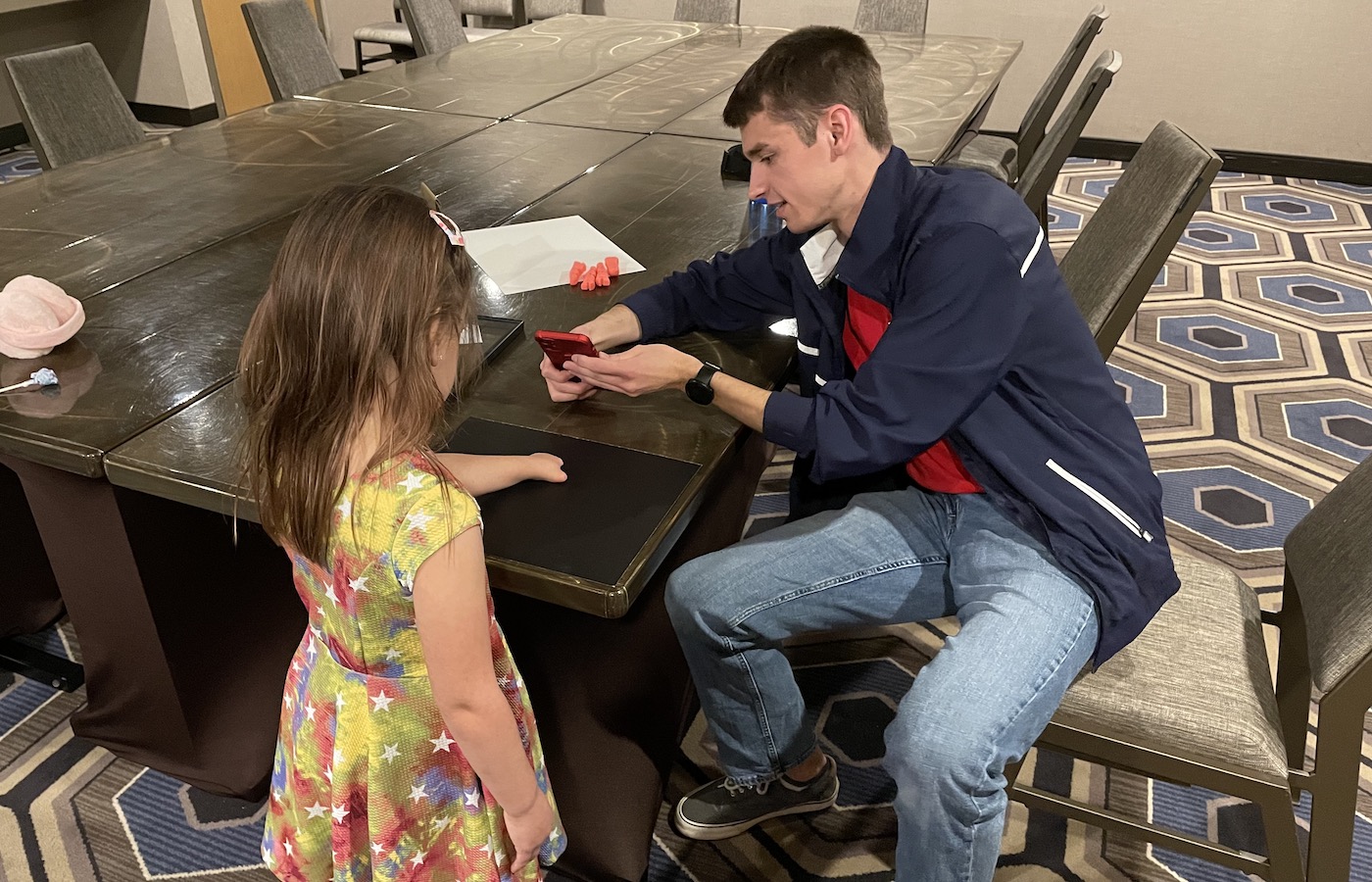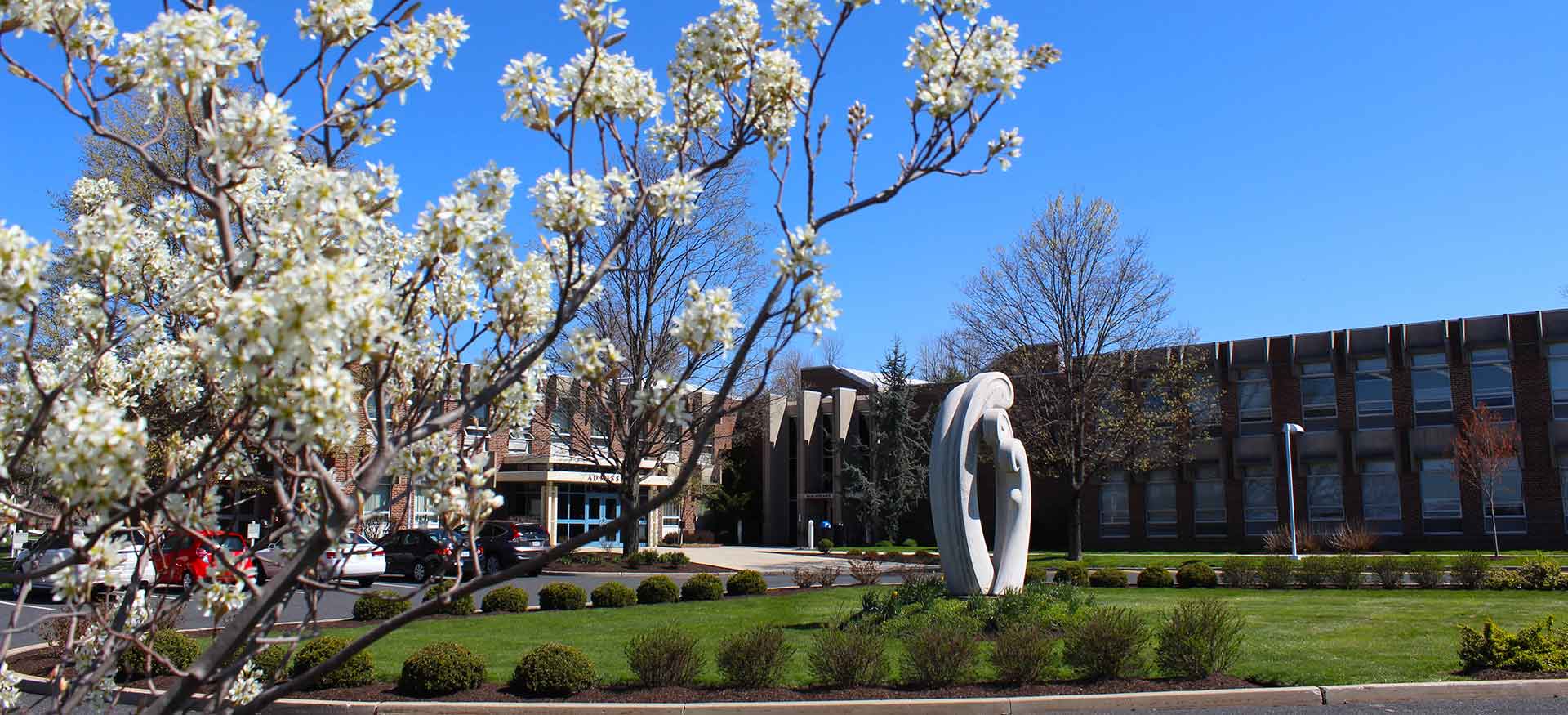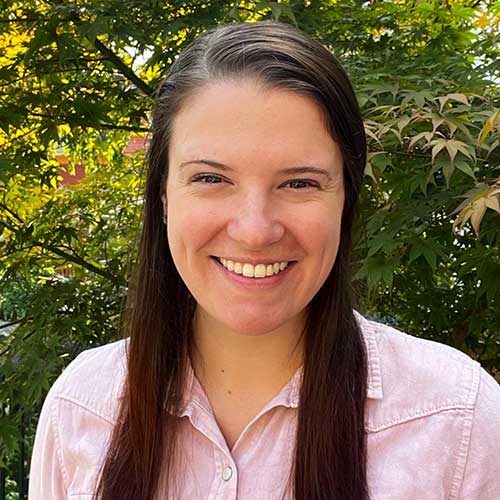3D Printing a New Path

DeSales leadership scholar Carl Tyce ’23 appreciates when he can see the real-world impact of his schoolwork. Less abstract, more concrete.
That appreciation came into full view last spring, during Tyce’s independent study in 3D printing and modeling. He and Karen Ruggles, associate professor of computer science, produced a prosthetic hand for a young girl in need.
“A lot of the studies I’ve done have been very indirect,” says Tyce. “When I’m in classes, doing a classroom lab, it’s very hard to see the implications of that work. Whereas this project, I know what effect it’s going to have because it’s going to help this little girl either feel more comfortable with herself or it will enable her to be able to do more. So, it’s very nice to do something that I can see has a direct impact.”
Tyce, a native of Highland Falls, New York, is no computer whiz by trade. The biology major’s first encounter with 3D printing came during the summer of 2021 when he and several classmates were chosen for the Summer Undergraduate Research Fellowship in the Natural Sciences.
Their project tested a rat’s sensitivity to thermal pain. They needed to create a device to restrain the rat. Tyce turned to Ruggles, who has 3D printing expertise, to ask a few questions.
Both would agree that Ruggles, in her own words, is inclined to “unleash a hailstorm of information” onto inquisitive students. That only fed Tyce’s curiosity. By the end of their first meeting, Ruggles suggested an independent study where, together, they could do some good.
This wasn’t Ruggles’ first time creating a prosthesis for a child. For about five years, she has worked with e-NABLE, an organization that connects families who can’t afford prosthetic limbs to volunteers with access to 3D printers. Using open-source instructions available online, Ruggles has already produced prosthetic hands for children in need.
e-NABLE matched Ruggles and Tyce with Elena, a 4-year-old from New Jersey who was born with symbrachydactyly, meaning she has no fingers on her left hand.
After Tyce took Ruggles’ course in 3D modeling that fall, they met frequently throughout the spring semester. The department of mathematics and computer science’s 3D printer is kept in Ruggles’ office for special academic endeavors like this.
Ruggles also received $650 in grant money from Women for DeSales to help cover project costs, which included traveling with Tyce to meet Elena and her family. In her funding request, Ruggles called Tyce an “excellent candidate” to potentially establish a long-term 3D printing program at DeSales.
“He’s just the perfect DeSales student if I’m being honest. He’s very respectful. He’s intelligent. He can problem-solve on his own but comes to you when things need to be solved. I had no problem saying, ‘Hey Carl, go watch these tutorial videos,’ or ‘I created this tutorial video for you, watch it.’ He’s going to watch it and he’s going to solve the problem.”
Tyce and Ruggles met up with the family in a hotel conference room, where Tyce used a LiDAR (Light Detection and Ranging) smartphone app to scan the dimensions of Elena’s hand. Ruggles modified preexisting design files to fit a hand to Elena’s size, while Tyce learned how to use the 3D printer and ultimately printed and assembled the final product, which was delivered to Elena in May.
“It’s something that’s a little bit more engaging to our student body—that they want to contribute to their community, they want to learn about this technology, and here’s a way that we can do both,” Ruggles says. “I’m excited for that opportunity to grow based off Carl’s involvement.”
It’s no sure thing that DeSales could create and regularly offer a course for students based on Tyce’s project. Ruggles says e-NABLE’s matching process isn’t robust enough for the demand for prosthetics to meet the potential supply. There’s also inadequate time during a semester for students to take turns printing their work.
“It’s okay if I don’t see how this is going to evolve,” says Ruggles. “I just know that there is something here, and whether that evolves with me or with another faculty member or into something completely different, at least we’re taking steps forward.”
As for Tyce, the DeSales community sees him as a shooting star with no shortage of options ahead of him. In addition to being a full-tuition Leadership Scholarship winner, he received a research grant last year to study incorporating statistics into DeSales’ molecular biology curriculum. He’s also presented at conferences, including a July meeting of the Society for the Advancement of Biology Education Research. He is currently considering a few different graduate school paths.
“What I thought I wanted to do has actually completely changed,” he says, “not because I don’t like biology but because I’ve found so many other things I want to try out.”
Almost as a bonus, Tyce happens to be a track and field star who set school records for the indoor mile and the outdoor 1500-meter run—both during the same semester as his independent study.
Tyce says he tends to be stubborn about doing everything himself, but his spring semester led him to realize it’s okay to ask for help as well.
“Help from my friends to help me relax, help from my coaches to help me figure out how I can balance meetings and practices and other projects,” he explains. “And working with professors when things just aren’t clicking and I need some help. When you go to college, you’re not doing it all on your own. You have that support network.”






